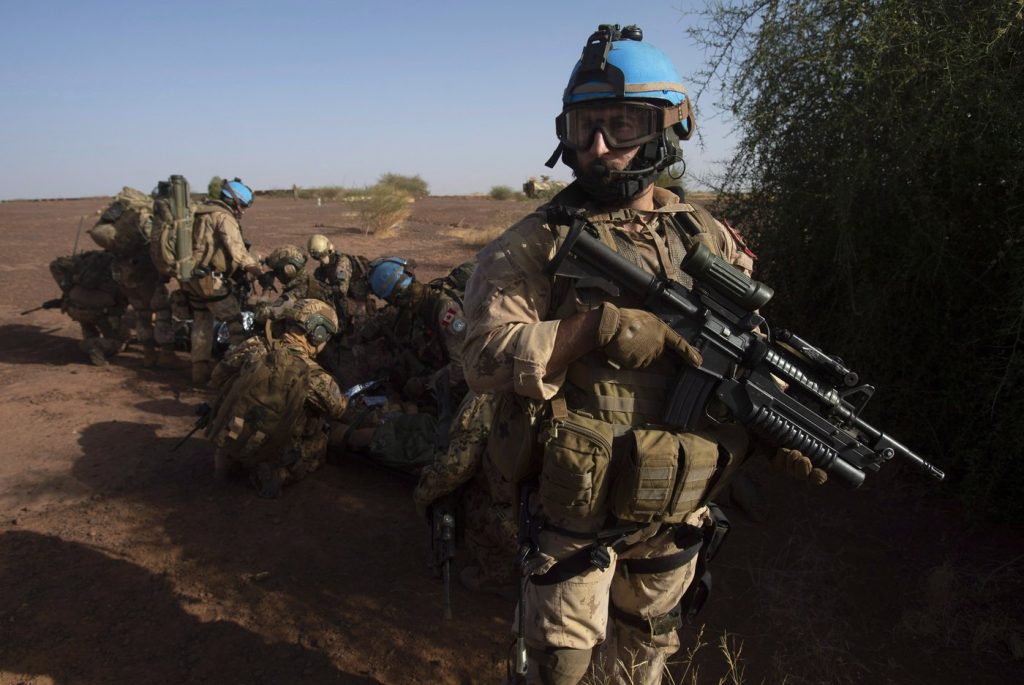OTTAWA - Only two women from the Canadian military are currently deployed on United Nations peacekeeping missions, raising concerns that Canada is failing to lead by example in promoting women's participation in such operations. This situation has become increasingly pressing as the federal government faces potential criticism for not meeting established targets set by the UN.
In 2017, former Prime Minister Justin Trudeau initiated a campaign aimed at positioning Canada as a leader in promoting the role of women in peacekeeping. This initiative was part of his administration's broader feminist foreign policy agenda. However, recent statistics indicate a troubling decline in the number of female members of the Canadian Armed Forces (CAF) engaged in peacekeeping, with the current number hitting an all-time low.
The latest UN statistics, published at the end of May, reveal that only 29 Canadians are deployed across 11 active UN peacekeeping missions. This figure comprises 18 military staff officers, six police officers, and five experts. Critically, none of the 18 Canadian Armed Forces officers deployed in these missions are women, which falls starkly short of the UN's goal to have 22 percent representation of women in military roles. Among the six police officers, three are women.
Walter Dorn, a professor at the Royal Military College of Canada, expressed concern over the implications of these statistics, suggesting that Canada’s inability to meet UN targets could damage its reputation on the international stage. “We had a really hard time meeting the UN targets that we supported. This is embarrassing in the international community,” Dorn noted, adding that such shortcomings could jeopardize Canada’s standing in future peacekeeping roles.
The Canadian Department of National Defence responded to inquiries regarding the troubling statistics, noting that numbers can fluctuate and confirming that there are currently six women on peace missions, including four police officers in the Democratic Republic of Congo and two CAF members in the Middle East and South Sudan. Kened Sadiku, a spokesperson for the department, maintained that Canada continues to advocate for the meaningful inclusion of women not only in UN peacekeeping but also in other global security organizations such as NATO.
The Trudeau administration has, in multiple election cycles, pledged to enhance Canada’s contributions to the UN, specifically aiming to increase the number of women participating in peace operations. The government also established the Elsie Initiative, aimed at bolstering female participation in UN missions, which research indicates can improve the success rates of such operations. While progress was made initially, such as achieving a representation of 25 percent women in uniform during the peacekeeping mission in Mali from 2018 to 2023, recent data shows a sharp decline under Trudeau's subsequent tenure, which ended with just one woman from the military on a UN mission.
Jane Boulden, a professor at the Royal Military College of Canada and Queen's University, voiced that the current dismal statistics could undermine Canada's credibility regarding its commitments to international peacekeeping initiatives. She highlighted the changing geopolitical landscape, noting that factors such as Russia's invasion of Ukraine and shifts in U.S. foreign policy under former President Donald Trump have created a challenging environment for global cooperation.
Currently, Canada has 1,900 military personnel deployed in Latvia as part of a deterrence mission following Russia’s aggressive actions. Boulden stated that the decision to send troops to Latvia has significantly reduced Canada's capacity to contribute to UN operations.
Women currently represent about 16 percent of regular force members in the Canadian Armed Forces, with 21 percent of these being officers. Overall, the global context for peace operations is at a “low ebb,” as only 11 UN missions exist at present, further complicating efforts to maintain significant female representation.
Historically, Canada has prided itself on its contributions to UN peacekeeping, having reached its peak in 1993 with 3,300 personnel deployed. However, the nation has since fallen to 74th place in terms of personnel contributions to UN missions. Retired Brig.-Gen. Gregory Mitchell noted that Canada's military focus has shifted from peacekeeping to counter-insurgency since the 1990s, indicating a long-term trend that may have contributed to the decline of peacekeeping participation.
This report highlights the significant challenges facing Canada in its role on the world stage and raises critical questions about its commitments to UN peacekeeping and the inclusion of women in these crucial operations.











